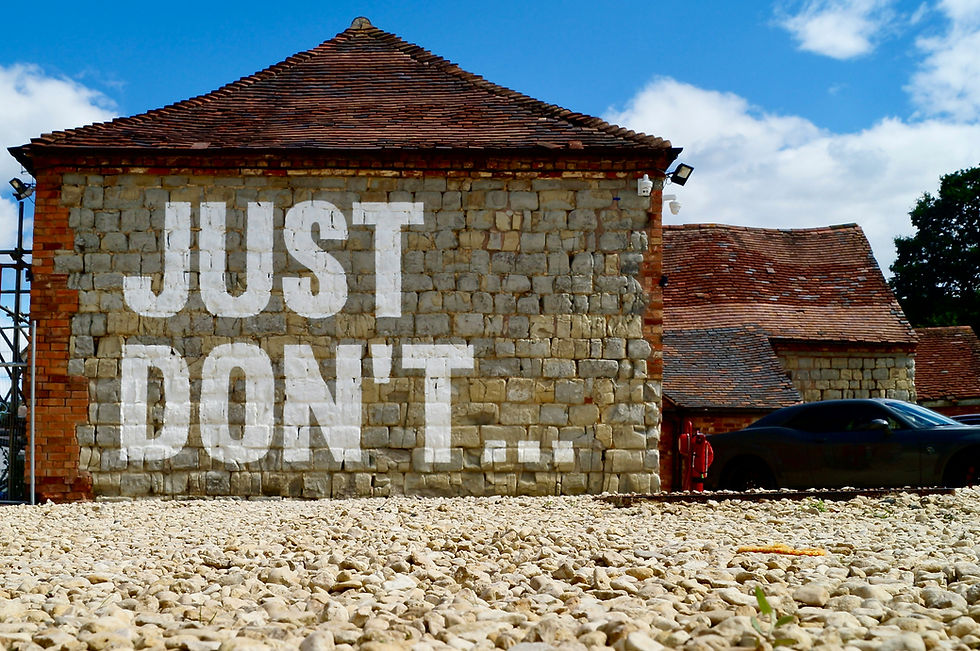More Whiteness, More Problems.
- Jessica Kiragu
- May 31, 2023
- 3 min read
Updated: Oct 7, 2025
You might remember Notorious B.I.G. warning us that “mo money” brings “mo problems.” DaBaby said something similar years later. And honestly? Something like this could be said about whiteness.

The more whiteness we cling to—the more we protect, center, and normalize it—the more problems it creates. And while most of us didn’t create whiteness, we’re still living inside the world it shaped—and keeps shaping—every single day.
Friends, I’m convinced whiteness has got to go. Whiteness was never designed for connection or equity. It was built to divide, to control, to harm—and it’s done all of those things exceedingly well.
Lately, I find myself sitting with this question again and again—what do I do with whiteness? How do white folks undo what whiteness has done—both out in the world and within us?
It’s not a one-time reflection, but a daily one. I’ve come to see how deeply the story of the U.S. that I grew up with—the one that makes “white” good, normal, and neutral—still shapes how I move through the world. It’s in the stories I learned at school and the ones that were left out. It’s in the neighborhoods my white family lived in, the comfort I was taught to protect, and the conversations I learned to avoid.
Whiteness isn’t just history. It’s habits. It’s expectations. It’s the water we’re swimming in.
And yet, noticing it can be disorienting. When I think about racial injustice, I often feel urgency and uncertainty tangled together. I want to act, but I don’t always know how.
That uncertainty turns into fear—what if I say or do the wrong thing?—so I hesitate. Then I feel guilty for hesitating, and I rush to do something, anything, just to feel like I’m trying. But when that action isn’t grounded in relationship or reflection, I recognize it as performative, and shame creeps in.
Then the cycle starts again. Fear, gilt, shame, repeat. It’s exhausting—and familiar to many white people I know.
This, I think, is part of how whiteness keeps us stuck. It seems to keeps white folks turned inward, measuring our worth by how “good” or “not racist” we are instead of asking deeper questions about our relationships, our impact, and our accountability. Whiteness feeds a need to “get it right,” to manage our image rather than reflect on who we are and how we’re connected to others. It tells us that we can solve racism through individual effort or moral purity and often leaves out collective reflection, relationship, and responsibility.
Whiteness rewards silence and punishes disruption. It tells us that being “nice” is more important than being honest. It makes systemic harm look like personal failure. It shows up in our mostly white friend groups, workplaces, and spiritual communities—even when we say we value diversity. And because whiteness hides itself so well, we can often mistake comfort for peace, dominance for normalcy, and avoidance for kindness. That’s how it keeps reproducing itself—quietly, efficiently, and everywhere.
But that’s not the only story available to us. Throughout history, there have been white people who saw through the lies of whiteness—people who resisted racial violence, rejected hierarchy, and insisted on shared humanity. Their stories don’t get told enough, but they show us that whiteness isn’t inevitable. It can be unlearned. It can be undone.
For me, that unlearning begins with honesty—facing the truth about how whiteness shapes me. Paying attention to where whiteness shows up in my thoughts, my choices, my comfort. Listening more deeply. Asking better questions. Practicing courage when it feels easier to stay quiet. It’s not about guilt—it’s about developing clarity, deepening accountability, and reimagining myself as a white person.
Letting go of whiteness doesn’t mean rejecting ourselves. It means rejecting the lies we were taught to believe about ourselves and others. It means loosening our grip on the illusion that whiteness keeps us safe, when really it keeps us separate. It means redefining belonging as something rooted in truth and connection, not control or avoidance.
White friends, we didn’t create whiteness, but we’re the ones who can unmake it. And even though that work can feel uncomfortable, it’s also deeply hopeful. Because every time we name it, question it, and loosen its hold, we make more room—for honesty, for justice, for relationship, for something freer than whiteness ever allowed.
That’s the story I’m trying to write now—less whiteness and, fingers crossed, fewer problems.




Comments